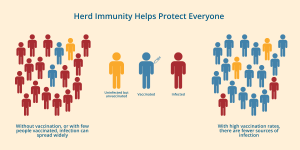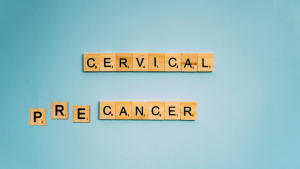HPV (human papillomavirus) is one of the most common sexually transmitted infections. Still, finding out that you or your partner has it can feel stressful and confusing. It’s normal to have a lot of questions: What does this mean for our health? Did someone cheat? Should we stop having sex?
We hear these kinds of concerns all the time, because— whether it’s you or your partner—any STI diagnosis can feel unsettling. This Q&A can clear up the confusion, debunk some common myths, and help you support each other.
My partner was just diagnosed with HPV. Does that mean they cheated?
No. A recent diagnosis of HPV does not necessarily mean that anyone has been unfaithful even if you’ve been together for a long time. It can sometimes take years after exposure to HPV before symptoms develop or for the virus to be detected.
It is usually impossible to determine when or from whom you or your partner got HPV. In most cases, it’s just as likely that you gave it to them as it is that they gave it to you.
You should also know that HPV is very contagious. In fact, most sexually active people will get HPV at some point in their lives. Figuring out the when or the who is not really important.
My partner was just diagnosed with HPV. Does that mean I have it? Will I just give it back to them?
You might have it, but you won’t keep giving it to each other. HPV is very contagious and most sexually active people will get it at some point in their lives. The good news is that most cases of HPV do not cause any health issues. Your immune system is able to clear the virus without you even knowing you had it.
Most couples will share HPV, but you don’t keep passing it back and forth. Eventually, your immune response suppresses the infection. Once that happens, your immune system will remember that type of HPV which means you won’t get a new infection with the same type.
There are a lot of types of HPV, however. Building up immunity to one does not mean you’ll be immune to others.
My partner was just diagnosed with HPV. Should I get tested?
Maybe. This one really depends on your body parts. If you have a cervix, you should be getting screened regularly with HPV and/or Pap tests (usually every three to five years). If you are not up to date on your screening, get tested. If you are, talk to your provider about whether your partner’s diagnosis means you should test again sooner.
There are no regular HPV screening tests for people with penises. Your provider can do visual exam to rule out genital warts, but it’s not usually recommended that men get tested when their partner is diagnosed.
My partner was just diagnosed with HPV. Do we have to change our sex life?
No. An HPV diagnosis does not have to change your sex life. It is likely that you’ve already been exposed to the type of HPV your partner has (especially if you’ve been together for a while). Once your immune system kicks in and suppresses the virus, it’s unlikely for you to pass the same virus back and forth because your immune systems remember it.
That said, if your partner has to go through any kind of treatment for HPV, they may need to take a break from sexual activity—especially penetrative sex—until the cervix is healed. Supporting your partner through this and making sure they don’t feel like they’re letting you down is really important.
I just got diagnosed with HPV. How do I tell my partner?
Honestly. Being open and honest with your partner is the foundation of a good relationship. Tell your partner as soon as you find out so that they don’t feel like you’re hiding anything. Read the answers above to the questions your partner might have so that you’re prepared to reassure them. The key points you might want to tell your partner are:
- HPV is very contagious and most sexually active people will get it at some point.
- There’s no way to know when I got it or who I got it from because infections can be dormant for many years.
- Most HPV infections go away on their own and don’t cause any health problems.
- I may have given it to you (or you may have given it to me), but we’re not going to keep passing it back and forth.
- I [do/don’t] think you need to be tested but you should ask your health care provider.
My partner just got diagnosed with HPV. How do I support them?
Be kind and reassuring. It’s great that you want to support your partner at this time. Some people get upset or anxious when they find out they have HPV. You can reassure them that it’s very common and most HPV infections are harmless. One important thing that you can do is reassure them that it doesn’t change how you feel about them or the relationship.
Some women find out about HPV at the same time they find out that they have cervical dysplasia which is considered a precancerous condition. Cervical dysplasia means there are abnormal cells on their cervix which may be precancerous and could become cancer. This kind of diagnosis can be scary to hear.
You can reassure your partner that this is not a cancer diagnosis and doesn’t mean they’re going to get cancer. Abnormal cells can go away on their own or your partner can get treatment to prevent these cells from becoming cancer. You might even congratulate them on taking care of their health and catching this early.
You can also support them through any follow up testing or treatment by offering to drive them to their appointment or cook them dinner afterward.
Any sexually transmitted infection diagnosis can cause fear and confusion in a relationship, but there’s no need panic if you or your partner is diagnosed with HPV. Most cases of HPV do not cause any health issues. If you get informed, stay honest, and support each other, they shouldn’t cause relationship issues either.








